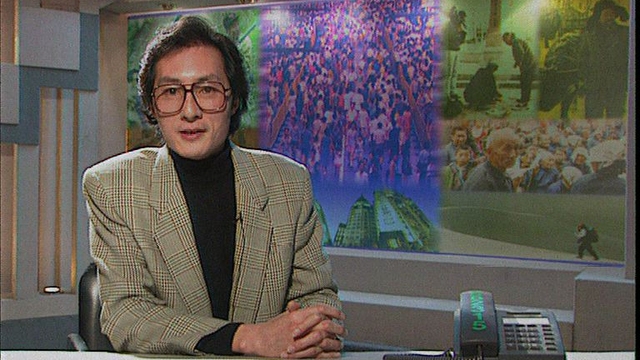Shanghai TV
China's television revolutionaries are changing the conversation
 We profile ground-breaking Chinese filmmakers who, for the first time in 40 years, are probing the darker side of their society.
We profile ground-breaking Chinese filmmakers who, for the first time in 40 years, are probing the darker side of their society.
The media, like every other industry in China, must make itself pay. State owned Shanghai TV has to widen its audience. Chinese viewers, jaded by years of state censorship, have switched off their TV sets in their droves. Yet Liu Shar is a young journalist at Shanghai TV, whose reports on poverty and unemployment are making waves. At a Shanghai textile mill 7,000 laid off workers wait to hear if they'll get their jobs back. After covering this, she is later hauled in to see her boss who tells her certain sensitive sections of her report have to be cut. Liu must find a positive angle to the story. Yet others like Liu have an appetite for showing the darker reality of Chinese society. Song Ji Chaing for example sees demand for reality on television, but says filmmakers still suffer from self-censorship. Song's films depict the breakdown of Communist system in stunning rural China. In one, Jin faces a crisis: he's spent his life on the Mayon River and a motorway has put him out of business. His son now wants to go to the city and Jin cries: "Damn it! There's an old saying: if you're going to get rich, do it at home!" Whilst the station's president still thinks TV must improve the standard of social morals, new filmmakers are forcing open the cracks in Chinese society.
FULL SYNOPSIS
Produced by Shane Teehan

